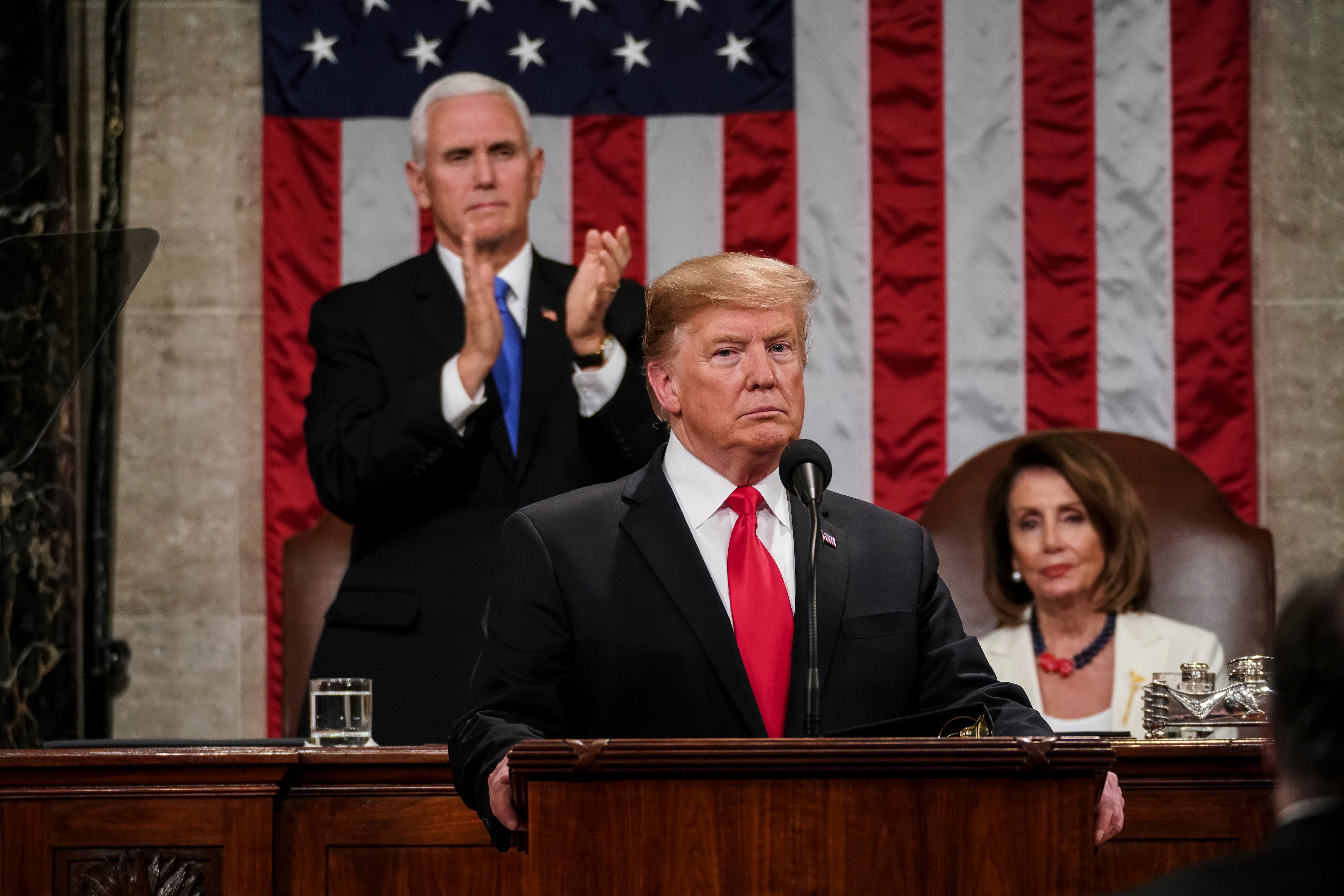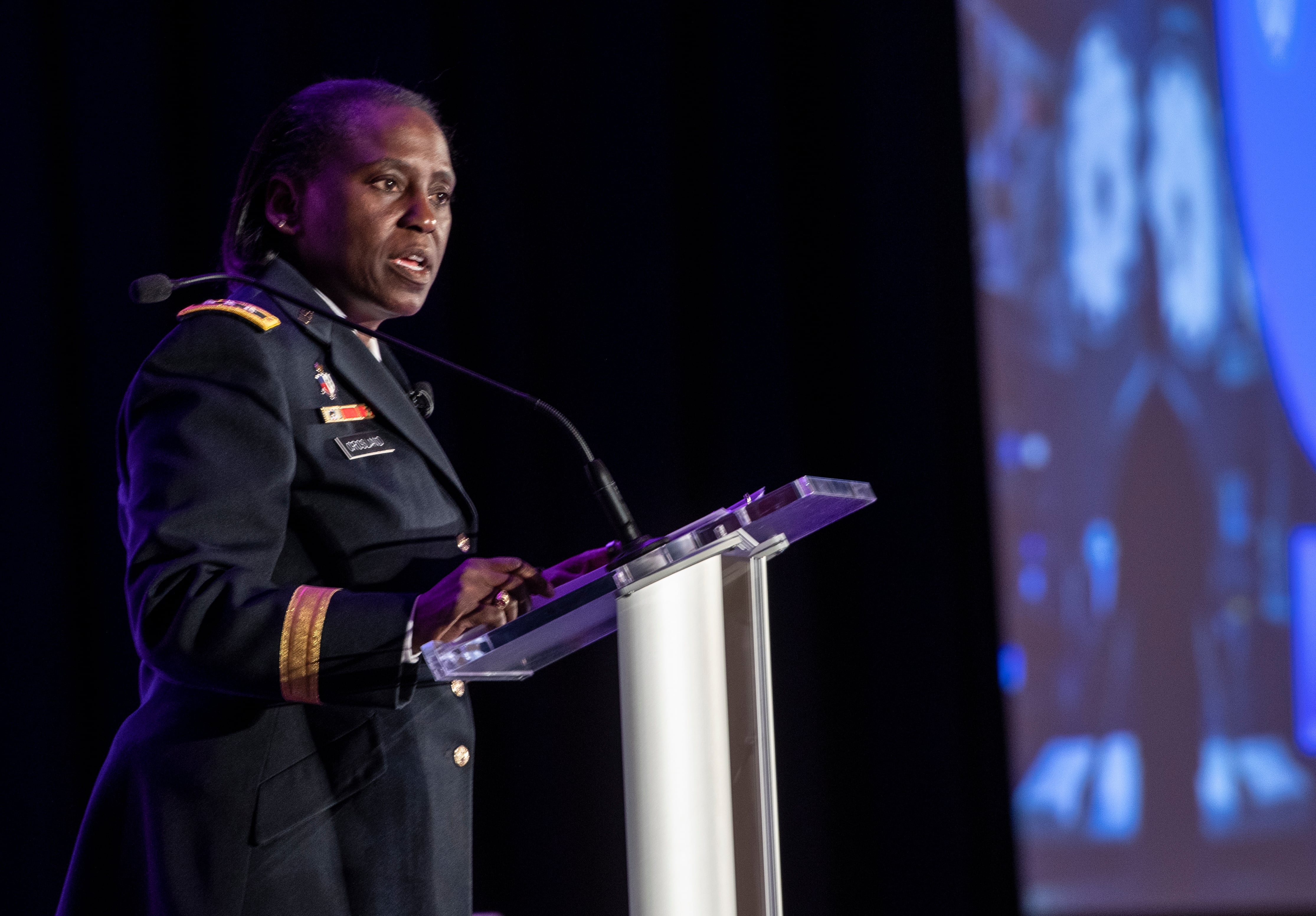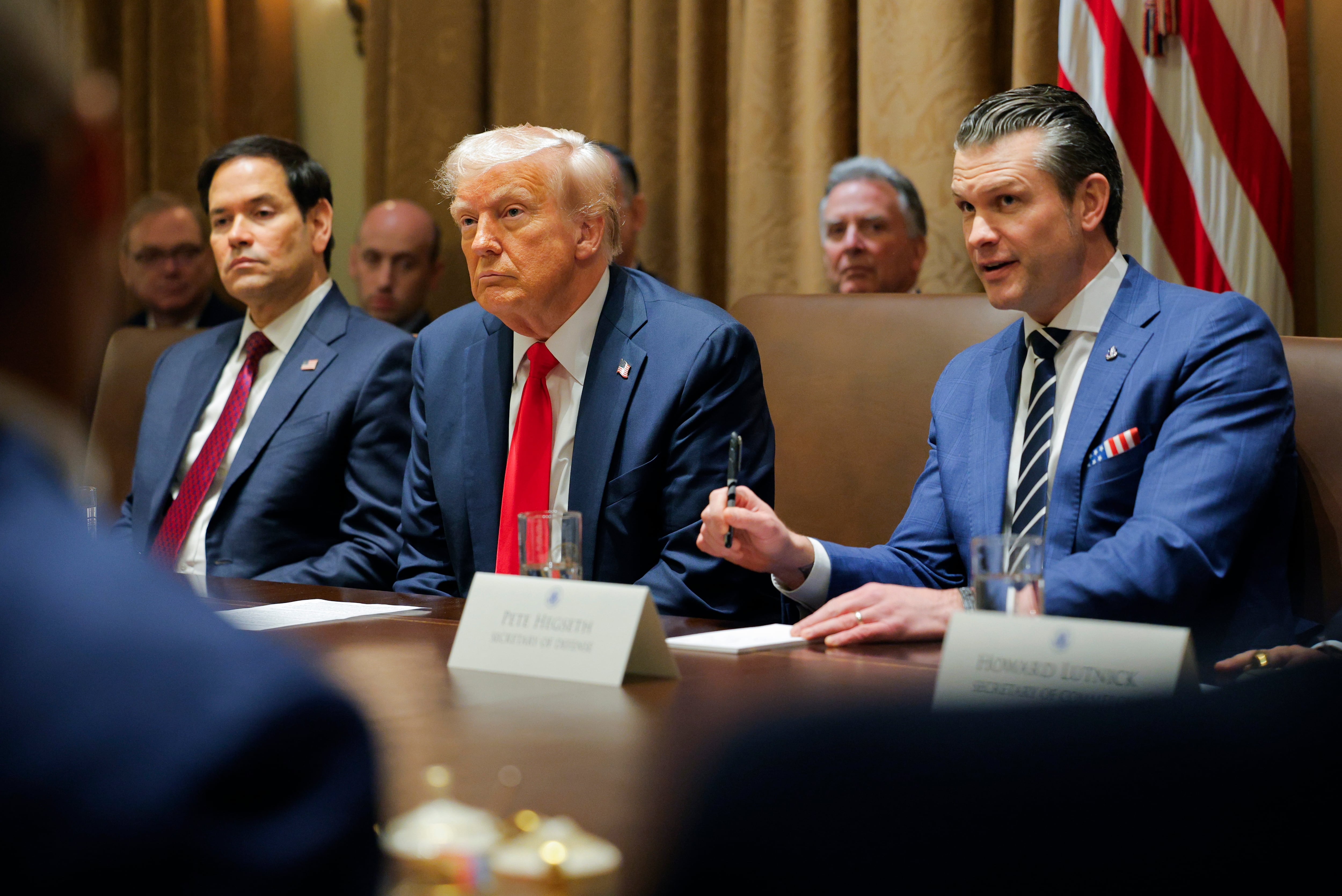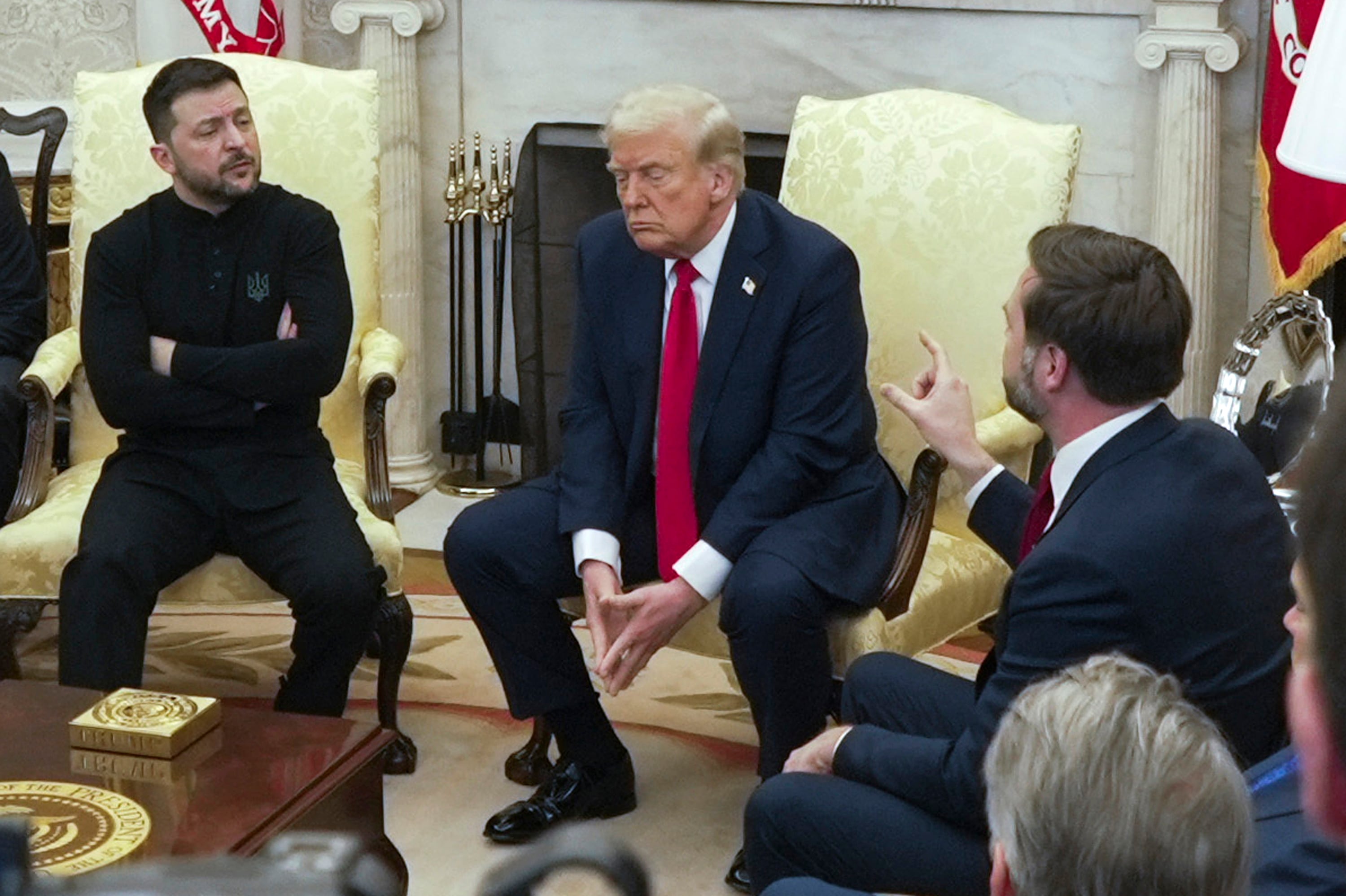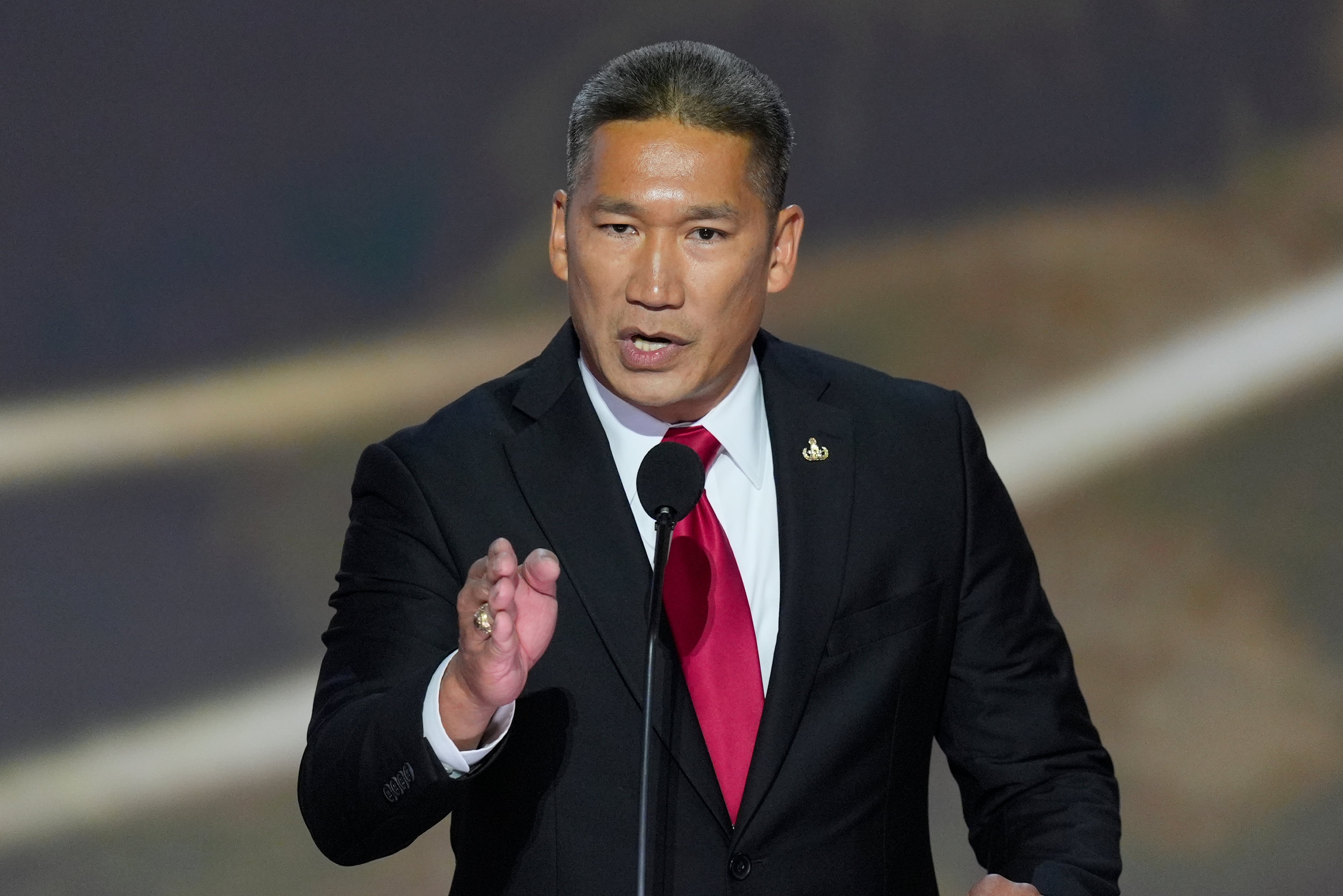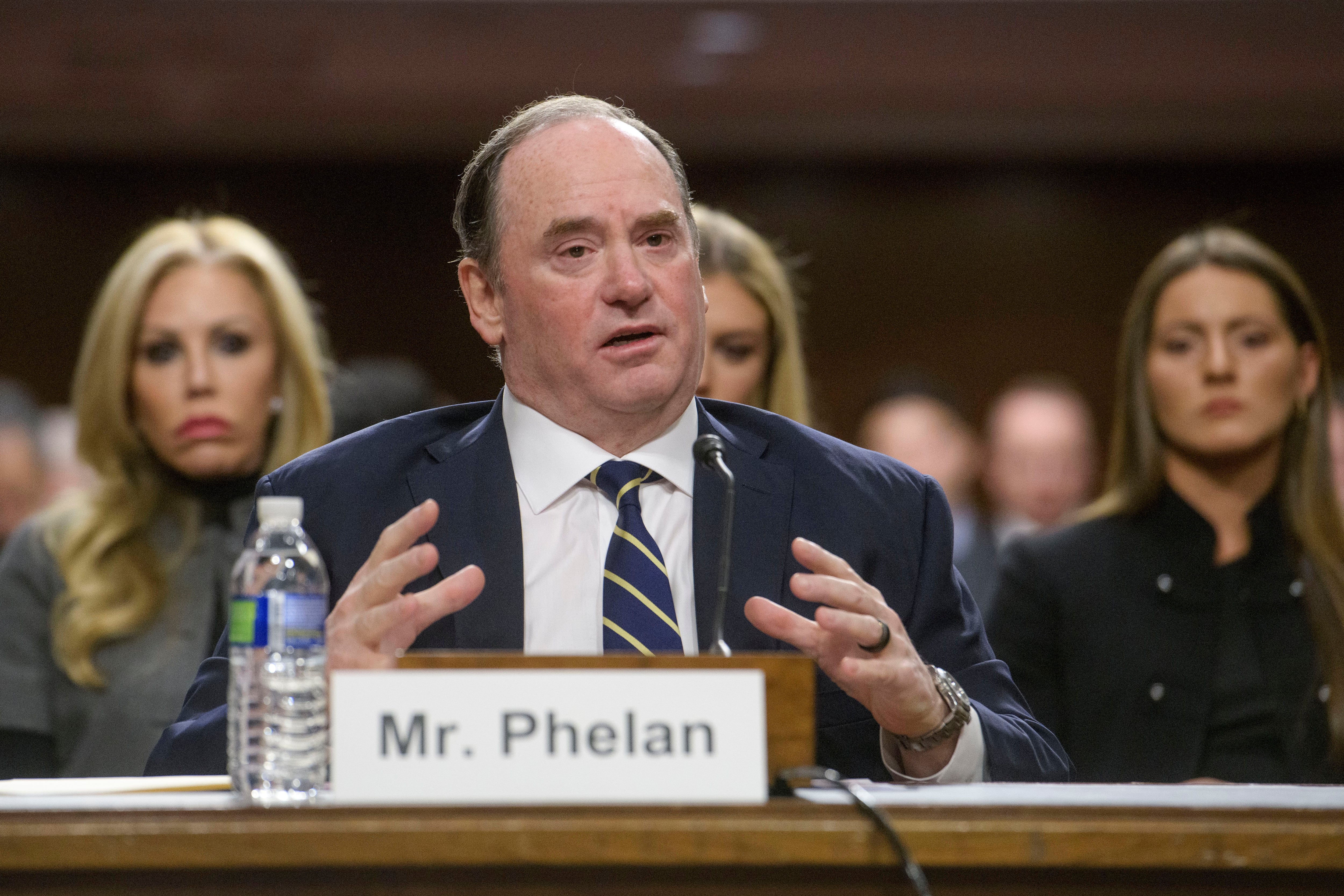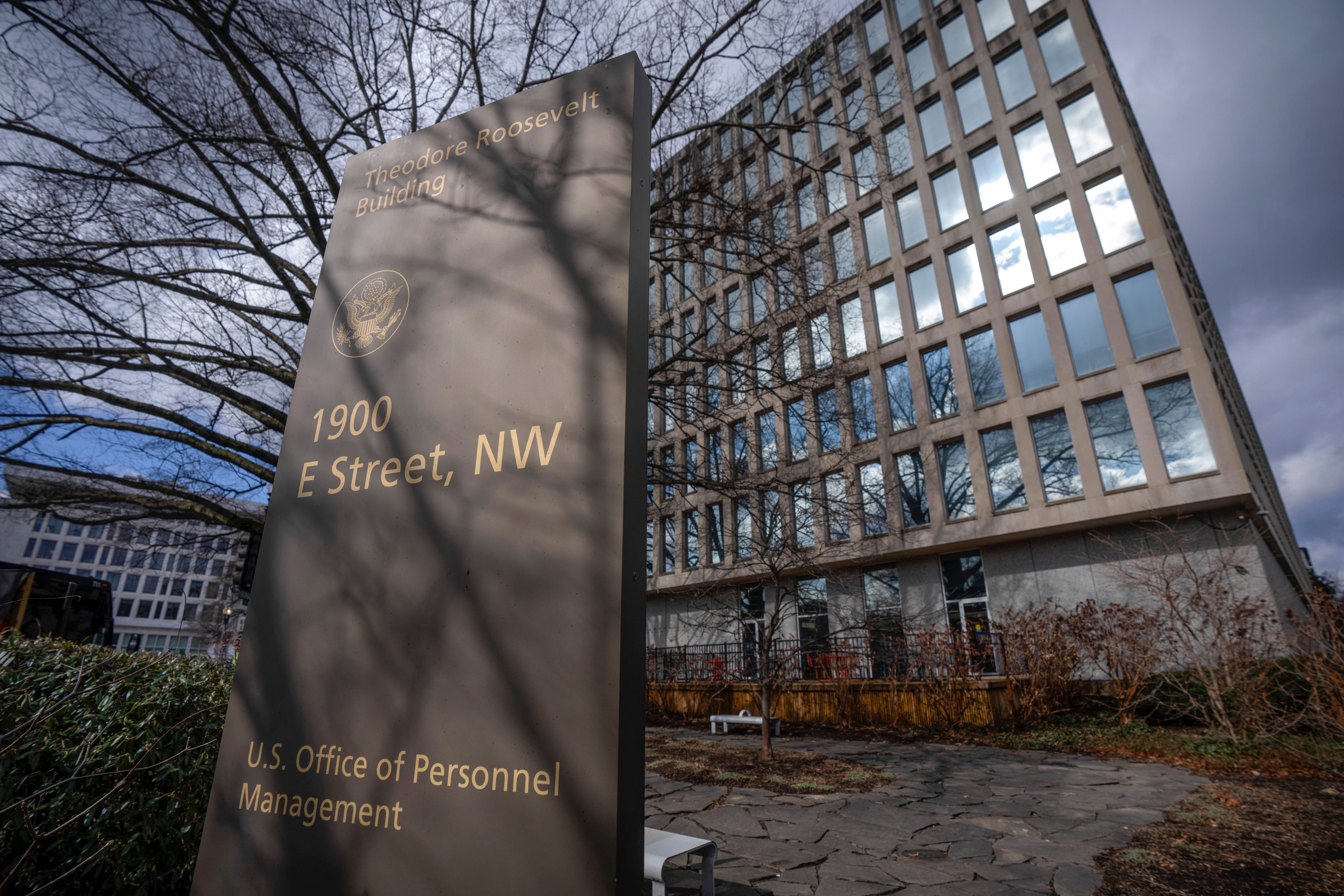But the Trump administration is considering how to help the Saudis advance their campaign, according to officials, who briefed reporters on condition they not be quoted by name. The assistance could involve more intelligence support but won't include a commitment of U.S. ground troops, they said, adding that any moves would reflect the administration's effort to aggressively counter what it sees as Iran's malign influence across the region.
Defense Secretary Jim Mattis, who met King Salman and other top Saudi officials Tuesday and Wednesday, has complained about Iran sending missiles to the Houthis, who've then used them to fire across the Yemen's border into Saudi Arabia.
"Everywhere you look, if there's trouble in the region, you find Iran," Mattis said after his meetings Wednesday. "So right now what we're seeing is the nations in the region and others elsewhere trying to checkmate Iran and the amount of disruption and instability they can cause."
In Washington, Secretary of State Rex Tillerson echoed the assessment.
A day after certifying that Iran was upholding last year's nuclear accord, Tillerson outlined the litany of American complaints about Tehran: its alliance with Syrian President Bashar Assad, support for Iraqi militant groups, threats to freedom of navigation in the Persian Gulf, cyberattacks against the U.S. and backing for groups threatening Israel's security.
On Yemen, he said Iran is helping the Houthis' "attempted overthrow of the government by providing military equipment, funding and training." He said interdictions of weapons shipments have revealed a "complex Iranian network to arm and equip the Houthis."
Before visiting Riyadh, Mattis said the administration's goal in Yemen was to help arrange a United Nations-brokered peace negotiation.
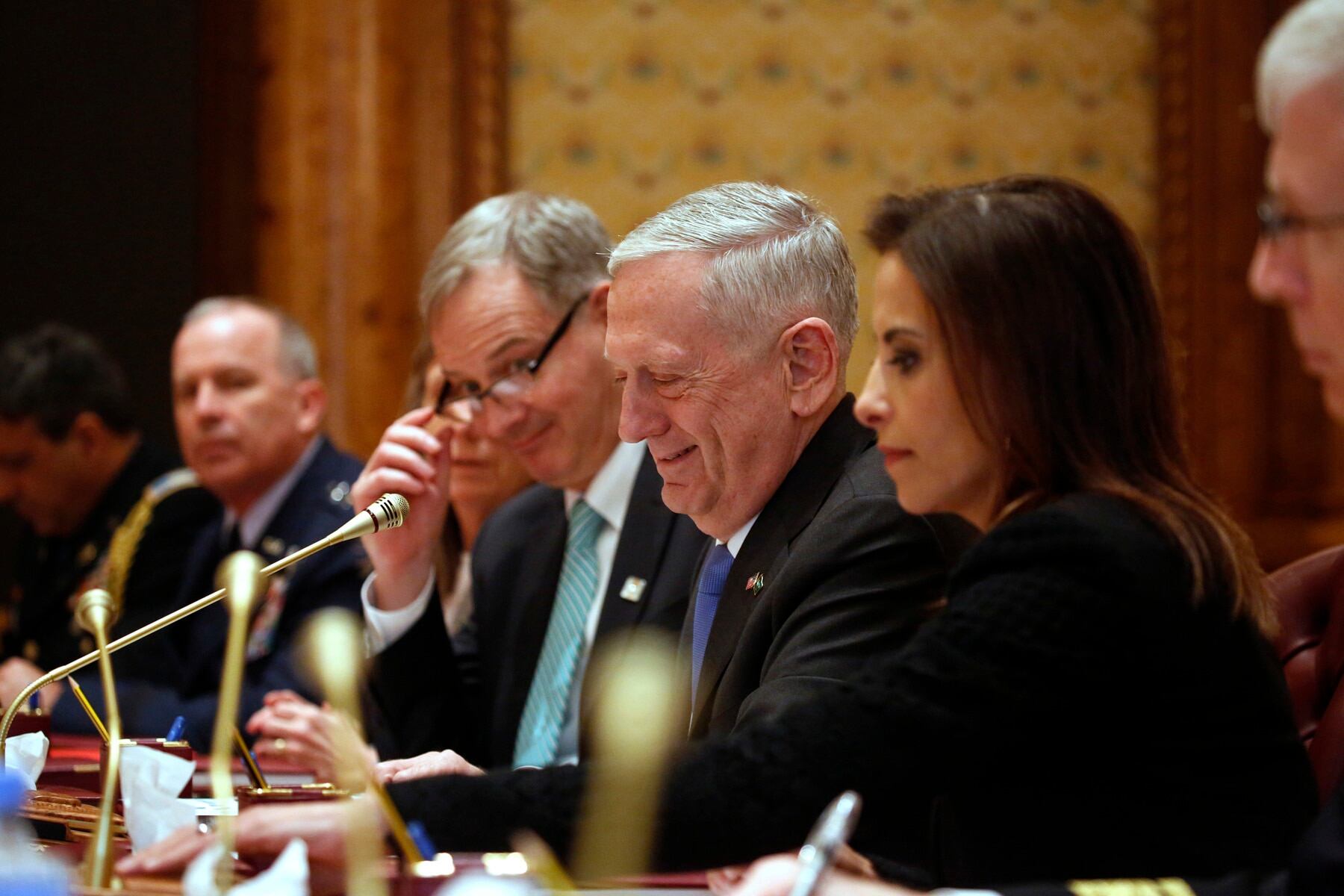
U.S. Defense Secretary James Mattis, center, flanked by U.S. Embassy Charge d'Affaires Christopher Henzel, second from left, and White House Deputy National Security Advisor Dina Powell, right, meets with Saudi Arabia's Deputy Crown Prince and Defense Minister Mohammed bin Salman and his delegation on April 19, 2017, in Riyadh, Saudi Arabia.
Photo Credit: Jonathan Ernst/Pool photo via AP
The war has claimed the lives of more than 10,000 civilians and led to the displacement of some 3 million Yemenis. Dozens of Saudi soldiers have been killed in cross-border attacks from Yemen.
Last month the U.N. special envoy for Yemen, Ismail Ould Cheikh Ahmed, warned that humanitarian and economic conditions were rapidly deteriorating. He urged the U.N. Security Council to pressure Yemen's government and Houthi rebels into ending the war and creating a transitional government. Speaking to the council on March 29, Ahmed said "further military escalation and humanitarian suffering will not bring the parties closer together."
A prospective coalition attack on the Houthi-held port of Hoedida, Yemen, has been put off amid concern it would cut off international relief supplies. U.S. officials said Wednesday work is underway to determine how to retake Hoedida without hurting aid efforts.
The U.S. and Saudi Arabia have been security allies since 1944. As he met Defense Minister Muhammed bin Salman, Mattis appeared to allude to deteriorated relations during the Obama administration, which spearheaded the seven-nation Iran nuclear deal that deeply upset the Saudis.
"We can overcome any past frustrations," Mattis said while U.S. journalists were in the room.
He said the U.S. would "reinforce Saudi Arabia's resistance to Iran's mischief" and suggested the possibility of President Donald Trump visiting Saudi Arabia.
"We are not leaving this region," Mattis said.

